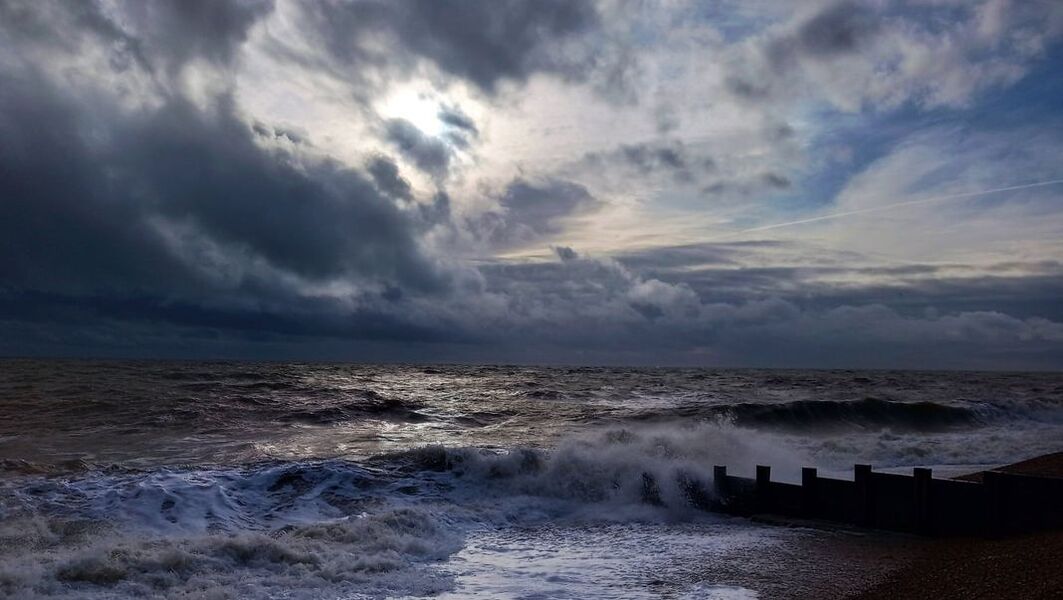|
Photo: Anna Mors Text: Colin Ellwood.
Presence Theatre at the Norwegian Embassy in Knightsbridge on the afternoon of Friday 5th April, presented a rehearsed reading of Jon Fosse’s Sea, translated by May-Brit Akerholt and directed by Simon Usher. There was a warm and gracious welcome from embassy staff including and especially from Kristin Asdaal, Arts and Communications Advisor. Huge thanks to her for her help, receptiveness and organisational acumen in arranging the event, which began with a thoughtful welcome address from the Ambassador Mr Weggen Christian Strommen who offered an acute characterisation of Fosse as a poet of contingent meaning and related his work to that of American poet John Ashbery. The subsequent semi-staged reading laid bare with measured clarity the stark bones of Fosse’s extraordinary play, with its little staccato verbal arrays like bleached bones poking through desert sands or - in this case - through a restless sea. Are the characters on a ship literally, figuratively or at all? The self-denominated Shipmaster and Guitar Player seem perhaps to embody instrumentality and expressivity respectively, while their strident self-assertions are rendered increasingly absurd by the uncertainties of identity and memory eddying around them. It is of course almost equally absurd to attempt to characterise the actors’ performances, given the short prep time available to them and the speculative nature of any ‘rehearsed’ reading, but nonetheless ----brought a bold sense of troubled, attacking urgency to the Shipmaster while Daniel Abelson accorded the Guitar Player what seemed just the right precarious balancing of complacence and uncertainty. Simon Usher read the necessary stage directions while also playing ‘the Man’, hunched and querulous, supposedly waiting in quite desperation for Jennie Gruner’s urgently-focused and hyper-aware ‘the Woman’, and recognising her as the long lost love of his life - but is she? Perhaps his (mis-?) recognition is of some primal need within himself, manifesting as an image mapped imperfectly onto the woman he confronts. His hobbled verbal assays seemed like ropes thrown blindly towards the sounds of rescue faintly apprehended through a dense fog. Valerie Gogan and Paul Copley as the ‘Older Woman and ‘Older Man’ brilliantly caught the couples’ anxious ‘innocents abroad’ perplexity, as their doubts about their own relationship proliferate and they flinch in horror at the serial attempts of everyone else ‘on board’ to claim them as parents. Gradually, as misrecognition and recognition somehow become indistinguishable, we heave towards what seems like the closest we’ll get to a definitive statement, from the Older Man: “I don’t know anyone/ and no-one knows me”, where Copley seemed almost to physically deflate, exuding relief like a balm, alighting on the only semantic solid ground left that he – or indeed we - can plausibly rely on. The only other hope of oceanic consensus is held out in the Guitar Player’s eventual playing, which indeterminate music salves at least some of the characters’ unease, while also validating his own strident assertions of identity, a state that the Shipmaster’s similarly embattled and solipsistic self-identifications seem never to attain. The music seems also to be a positive and expressive – if radically contingent - answer to the challenge laid down by the equally fluid but apparently meaningless indeterminacy of the sea. Valerie Gogan’s presents a brittle, clipped-dictioned Older Woman holding panic at bay by a precipitous blocking of the deep pain that ghosts across her eyes, and Jennie Gruner plays the Woman with the measured urgency of someone grasping a last but slim chance to chart a course out of a fatal swamp. Overall then it was a great and absorbing pleasure to relish the stillness of the piece in the cool, white embassy stateroom. A video screen behind the actors eerily asserted ‘no signal’, while also reflecting a ghostly image of the room’s huge central chandelier, as if denoting grandness remembered in a dream. The play is indeed reminiscent of figures in a dream, each one issuing blunted verbal sallies degraded almost to pidgin through desperation, the obsessive repetition of which serve only to further erode their meaning, or rather revealing them as no more than symptoms of a primal desire for connection, a rictus reflex of human need. Here we have a chastening and resonant portrait of human identity slipping out of kilter, slowly falling out of phase, exposed as teetering precariously above an abyss; everyone a mere echo in everyone else’s consciousness, blurred photographs endlessly fading; the characters serial misrecognition of each other attesting to a desperate need, most of all for a safe familial harbour, a salving and protecting parental embrace After the reading a fascinating question-and-answer session, exploring amongst other topics the culturally-specific nature of the iconography of the sea, the relationship of Fosse to the high modernist tradition, with a general consensus emerging of how great this play is, how necessary and fresh it would be to the London theatre eco-system. Presence Theatre now hopes to move towards a full production of the play in London. If you would like to contribute to this please visit https://www.totalgiving.co.uk/charity/presence-theatre-limited or contact [email protected] for more information.
0 Comments
Leave a Reply. |
INDEX of dates:
INDEX of blog posts: INDEX of contributors:
|

 RSS Feed
RSS Feed
